December 5, 2024
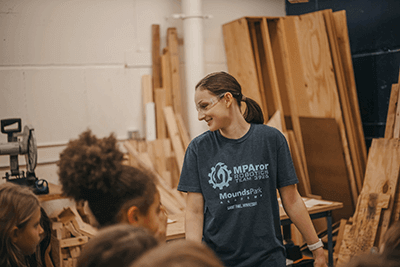 from Dr. Bill Hudson, head of school
from Dr. Bill Hudson, head of school
It was wonderful to see so many families at the annual Founders’ Day Pancake Breakfast! The joyfulness and communal spirit are living testimony to the founding vision of Mounds Park Academy (MPA). Decades ago, Bob Kreischer and Sandy Kreischer Smith, alongside founding board members, established MPA with the belief that education could be both joyful and academically challenging and they purposely grounded the school’s pedagogy in a progressive, whole-child, liberal arts curriculum.
Next week, MPA will join thousands of schools worldwide in celebrating the Hour of Code, a movement introducing millions of students to computer science through one-hour coding activities. Rather than limiting our students to just one hour, MPA will host a week-long celebration of coding and STEM-related activities, demonstrating our commitment to innovation, collaboration, and hands-on learning. The following are just a few of the activities planned for next week:
- Lower School students will engage in programming activities during Tech and Library time throughout the week, including time with Upper School computer science class students and Upper School Makerspace class students.
- Middle School students will be experimenting with fun STEM and coding-related technology such as the Spero Bolt, Makey Makey, Scratch Labs, and Micro:Bit during B-day advisory classes.
- In Upper School, ninth-grade students will learn coding by using Sphero Robotics during seminar time. They will also have access to the arcade games created by computer science students.
At MPA, STEM encompasses science, technology, engineering, math, computer science, coding, robotics, engineering and design, digital literacy, and the Makerspace. Our approach is comprehensive and empowers students across grade levels to explore, create, and apply knowledge in practical, meaningful ways. By integrating STEM into our liberal arts curriculum, we ensure that students are equipped with technical expertise, critical thinking skills, and ethical reasoning, preparing them for both the challenges of today and the unknown opportunities of tomorrow.
STEM within a liberal arts framework aligns perfectly with MPA’s mission of fostering a whole-child education. Technology has become an integral part of modern life, influencing communication, healthcare, environmental sustainability, and the arts. Understanding STEM principles allows students to navigate and shape this dynamic world. At the same time, MPA’s liberal arts curriculum broadens students’ perspectives, cultivating critical thinking, creativity, and ethical awareness. Together, these disciplines prepare students to thrive in an ever-evolving landscape.
One of the most compelling reasons for incorporating STEM into a liberal arts curriculum is its ability to enhance problem-solving skills. At its core, STEM at MPA is about addressing challenges through logic, creativity, and innovation. Students learn to break complex problems into manageable parts, design algorithms, and test solutions. These problem-solving skills transcend the classroom, equipping students to apply them to real-world scenarios across disciplines.
STEM at MPA also complements the goals of a liberal arts education by fostering critical thinking, creativity, and ethical reasoning. Coding, for example, challenges students to think analytically and refine their approaches. Simultaneously, STEM at MPA is deeply creative, enabling students to design digital art, create games, or build apps that bring their ideas to life. Importantly, a liberal arts framework encourages students to consider the ethical implications of their work. Topics such as data privacy, artificial intelligence, and digital equity are interwoven into the curriculum, ensuring students not only excel technically but also think deeply about the societal impact of their innovations.
STEM at MPA also empowers students as innovators. By learning to code, design, and build—and spending time in the AnnMarie Thomas Makerspace—students transform from passive consumers of technology into active creators. This empowerment fosters entrepreneurship, enabling students to launch their own projects, businesses, or social initiatives. Whether designing a user-friendly app, developing a new product, or solving a real-world problem, students learn to take their ideas from concept to reality. This process cultivates resilience, creativity, and a sense of agency—qualities essential for success in any field.
STEM at MPA is not treated as an isolated discipline but as an integral part of the broader liberal arts curriculum. For instance, eighth-grade students participate in the Future Cities Competition, where they design and build a model of a sustainable city. This project involves engineering principles, research, essay writing, and presenting their work to judges, exemplifying the interdisciplinary connections STEM fosters. Such projects demonstrate the relevance of STEM across areas of study and deepen students’ appreciation for its role in addressing complex challenges.
The benefits of STEM at MPA extend far beyond technical proficiency. By engaging in STEM, students develop essential skills in collaboration and communication. Many projects require teamwork, teaching students how to work effectively with others and leverage diverse perspectives. STEM also emphasizes the importance of explaining technical concepts clearly, ensuring students can communicate ideas to both technical and non-technical audiences. These skills are invaluable in a world where collaboration and communication are key to success.
Finally, STEM at MPA fosters digital literacy, a critical skill in the 21st century. Students learn how technology works and gain insights into its societal implications. They navigate the digital world responsibly, protect themselves from cyber threats, and critically evaluate the role of technology in their lives. This digital literacy not only prepares students for college and careers but also empowers them to be informed, engaged citizens.
Integrating STEM into Mounds Park Academy’s liberal arts curriculum is about more than preparing students for jobs in a technology-driven world—it’s about preparing them for life. By combining technical expertise with creativity, critical thinking, and ethical reasoning, MPA ensures students are equipped to lead, innovate, and contribute meaningfully to society. As technology continues to evolve, MPA graduates are prepared to be thoughtful, compassionate, and visionary leaders.
 from Dr. Bill Hudson, head of school
from Dr. Bill Hudson, head of school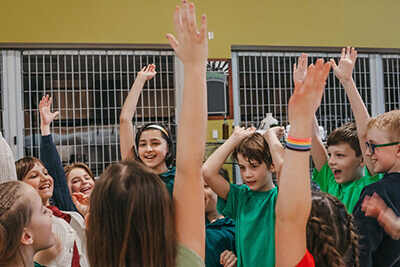 from Dr. Bill Hudson, head of school
from Dr. Bill Hudson, head of school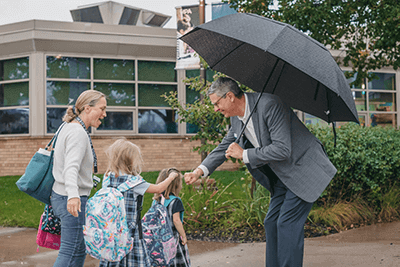 from Dr. Bill Hudson, head of school
from Dr. Bill Hudson, head of school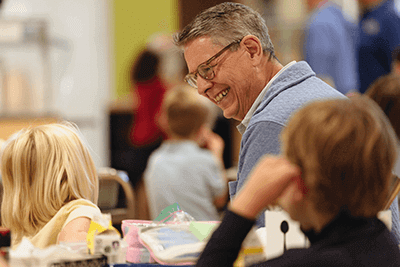 from Dr. Bill Hudson, head of school
from Dr. Bill Hudson, head of school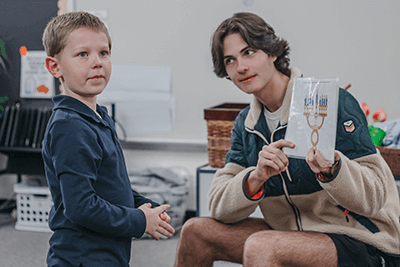 from Dr. Bill Hudson, head of school
from Dr. Bill Hudson, head of school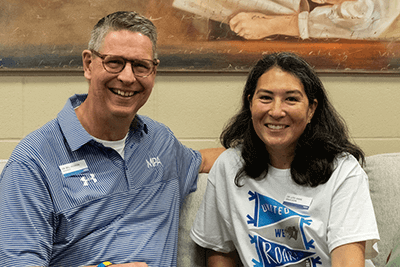 from Dr. Bill Hudson, head of school
from Dr. Bill Hudson, head of school from Dr. Bill Hudson, head of school
from Dr. Bill Hudson, head of school from Dr. Bill Hudson, head of school
from Dr. Bill Hudson, head of school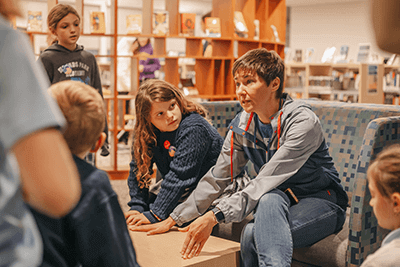 from Dr. Bill Hudson, head of school
from Dr. Bill Hudson, head of school from Jennifer Le Varge, Lower School director and director of the Center for Inclusive Teaching and Learning
from Jennifer Le Varge, Lower School director and director of the Center for Inclusive Teaching and Learning